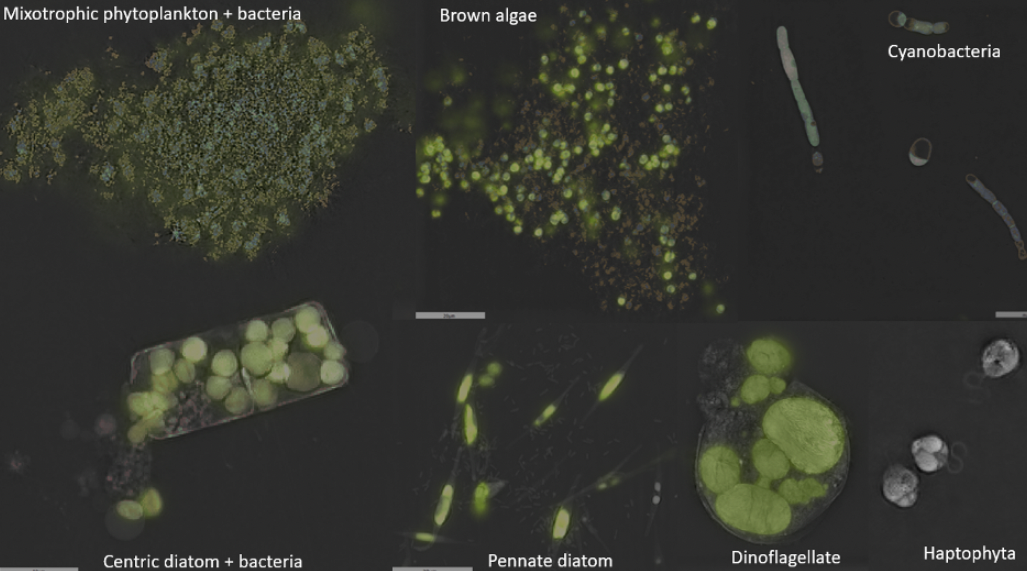Mini-grants boost professional development, foster diverse geoscience workplace
 Linnea Wolniewicz presenting to a class of high school students.
Linnea Wolniewicz presenting to a class of high school students.
A new opportunity was launched recently within the UH Mānoa School of Ocean and Earth Science and Technology (SOEST) to support professional development opportunities and foster diversity and inclusion. A total of 16 projects were awarded funding for spring and summer 2024.
Catalyst Awards for Science Advancement (CASA) are small grants, up to $3,000, in three focus areas: technical training and holistic career development of female graduate students, staff, and faculty who are a part of Women-in-SOEST; advancing diversity, equity, inclusion (DEI) and/or fostering a Native Hawaiian place of learning in SOEST; and attracting and training the next generation of planetary explorer-scientists.
“It was amazing to see such innovative and impactful activities proposed. Many were collaborative, bringing together faculty, staff and students from across SOEST. It’s exciting to support such great projects,” said Barbara Bruno, CASA program director.
Supporting professional development
Women-in-SOEST members received support to conduct fieldwork and laboratory experiments, purchase equipment, attend workshops, present at national and international conferences, and develop new research collaborations. For example, Fernanda Henderikx-Freitas traveled to University of California, Santa Barbara to learn a state-of-the-art technique to characterize oceanic particles, Emily Costello will present an invited talk at an upcoming astrobiology conference, and Juliana Peckenpaugh and Meryem Berrada enrolled in an online data science course.
“I’m incredibly thankful that the CASA funding will allow me to take a prestigious course in data science offered by Harvard University to boost my skills in this field and provide workshops to Women-in-SOEST members to ensure nobody gets left behind when it comes to programming and data science,” said Peckenpaugh, a SOEST Earth and Planetary Sciences graduate student.

Community and student outreach
All SOEST graduate students, faculty, or staff members were eligible to apply for a grant to further DEI or conduct outreach to train the next generation of planetary science explorers. Funded projects also included outreach to community members and K-12 students in Hawai‘i.
“I was so thankful for the CASA grant funding that allowed me to bring Graduate Women in Science volunteers to four high schools around the state of Hawaiʻi, as well as fund a visit from female students at Maryknoll High School to come and visit labs at UH Mānoa,” said Linnea Wolniewicz, a UH Mānoa computer and information sciences graduate student. “Students really enjoyed the workshops, and we received very positive feedback from teachers. It was very special to be able to educate students on discovering exoplanets from a completely female cohort of scientists, and inspire young girls to attend college and study science.”
In addition to the direct impact of the projects funded, the CASA program requires funded projects to disseminate what they did or learned, creating a positive ripple effect wherein others can benefit from their experiences and knowledge gained.
Professional development built into application process
Bruno developed an application process that, in itself, was a professional development opportunity for graduate students, postdoctoral researchers, staff, and faculty. Grant writing and project management are skills that are required for many who continue in academia. However, students or early career faculty may not have a lot of experiences that develop those skills.
“CASA builds in three layers of professional development: through writing the proposal, executing the proposed activities and (optionally) by serving as a review panelist. A two-stage, user-friendly review process enabled many proposals to be successful. The hope is that, armed with this small-scale success, project leads feel confident to pursue more sizeable grants,” said Bruno.
In a two-stage review process, applicants have the opportunity to respond to peer reviews within a single review cycle. Applicants provide clarifications and address weaknesses, which strengthens their proposals and increases their likelihood of success. This transforms an otherwise intimidating (or daunting) grant-writing experience into a positive, learning opportunity.
Funding for the grants is provided by the National Science Foundation and National Aeronautics and Space Administration, in cooperation with the Interdisciplinary Consortium for Evaluating Volatile Origins (ICE-Five-O) and Women-in-SOEST.
Bruno intends to request proposals twice per year for three years to continue funding creative, impactful outreach projects, professional development, and DEIJA initiatives.




